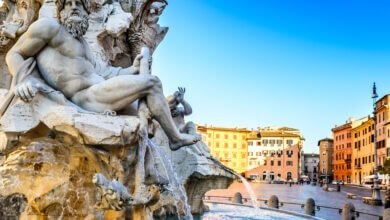The 5 Best Cities in Ireland to Visit [2025 Reviews]
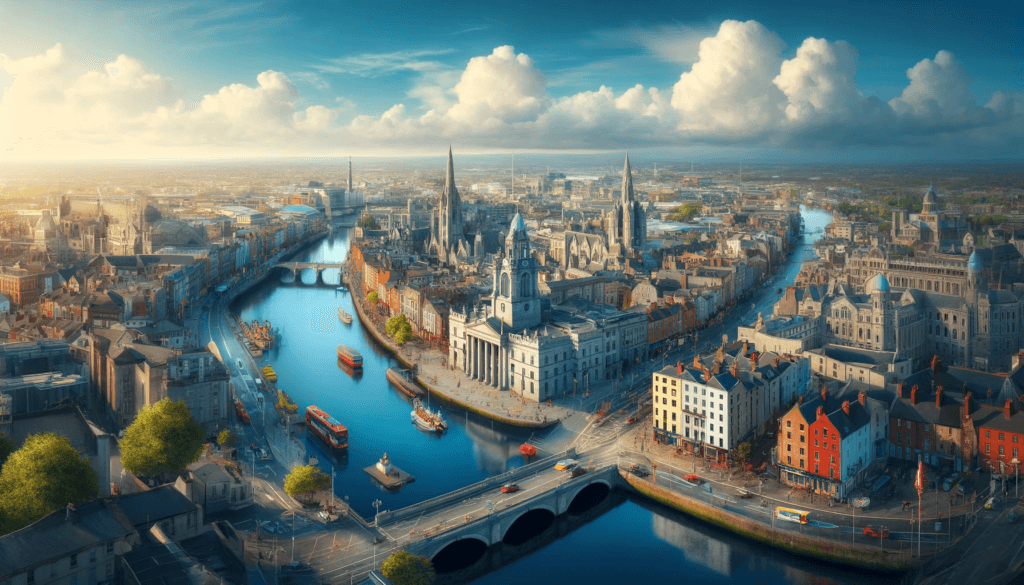
Best Cities in Ireland to Visit & Experience the Luck of the Irish.
Ireland is an incredible country with a rich cultural heritage centered around Dublin, Cork, Limerick, Galway, and Waterford. The experience of visiting these major population and cultural centers in Ireland is unparalleled.
To fully experience Ireland’s cultural impact, I recommend reading about these cities, exploring available tours for the best value, and booking them to ensure an enriched and unforgettable journey through the Emerald Isle.
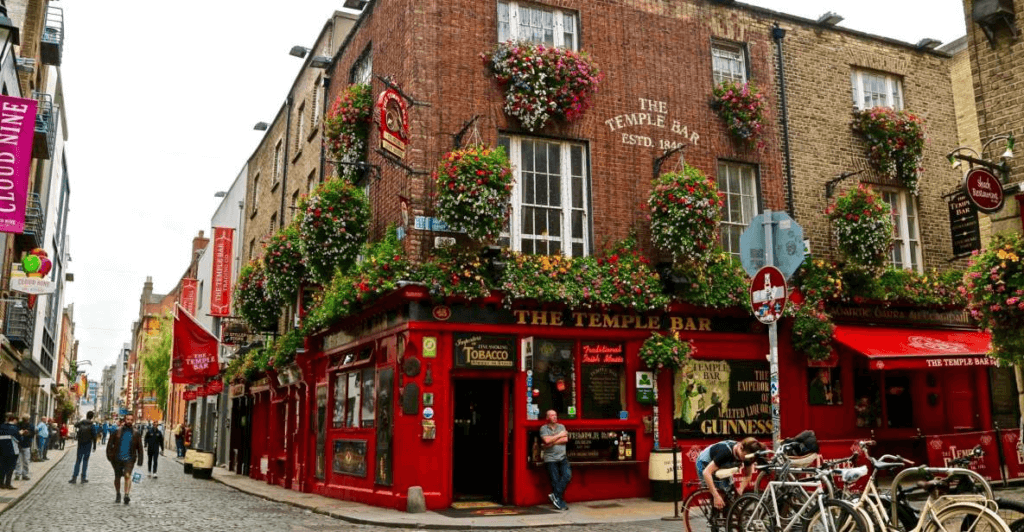
Dublin
Google Maps
What Dublin is Known For
Dublin, Ireland’s capital city, is renowned for its vibrant atmosphere, historic landmarks, and rich literary heritage. It’s home to iconic sites like Trinity College, the Guinness Storehouse, and Dublin Castle. The city is also famous for its lively pub culture, particularly in the Temple Bar district.
Why I Like Dublin
Dublin combines a small town’s charm with a cosmopolitan city’s vibrancy. Its friendly locals, bustling streets, and diverse cultural offerings make it a must-visit destination. Whether strolling along the River Liffey or enjoying live music in a traditional pub, Dublin never disappoints.
History
Dublin’s history dates back over a thousand years. Originally a Viking settlement, it has become a major cultural and economic center. The city has played a pivotal role in Ireland’s history, from the medieval period through the fight for independence in the 20th century.

Ultimate Guide to the Best Cities in Ireland to Visit
Culture
Dublin is a cultural hotspot for its contributions to literature, music, and the arts. The city celebrates its literary heritage through landmarks like the Dublin Writers Museum and the James Joyce Centre. Festivals such as Bloomsday and St. Patrick’s Festival highlight Dublin’s cultural vibrancy.
Food
Dublin offers a diverse culinary scene, from traditional Irish fare to international cuisine. Don’t miss the chance to try local dishes like Irish stew, boxty, and seafood chowder. The city’s food markets and high-end restaurants provide a delightful culinary experience.
Getting Around
Dublin is well-connected by public transport, including airport to city services, buses, trams (Luas), and trains (DART). The city is also very walkable, with many attractions nearby. Biking is another popular way to explore Dublin, with numerous bike rental stations available.
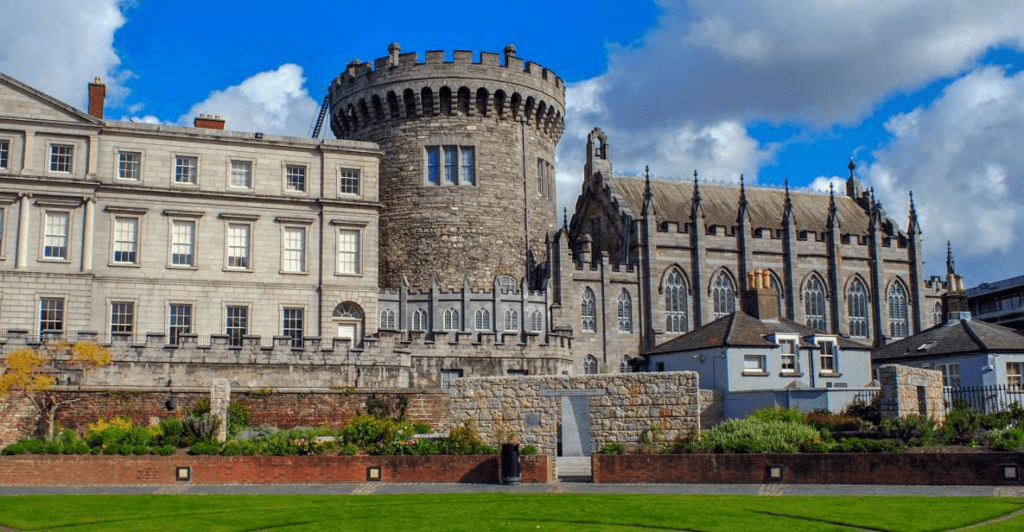
Things to Do in Dublin
- Visit Trinity College and the Book of Kells: Explore Ireland’s oldest university and see the stunning illuminated manuscript.
- Guinness Storehouse: Learn about the history of Ireland’s most famous beer and enjoy a pint with a view at the Gravity Bar.
- St. Stephen’s Green: Relax in this beautiful city park.
- Dublin Castle: Discover the historic seat of British rule in Ireland.
- Temple Bar: Experience Dublin’s nightlife in this famous district.

Ultimate Guide to the Best Cities in Ireland to Visit
Cork
Google Maps
What Cork is Known For
Cork, Ireland’s second-largest city, is known for its rich maritime history, vibrant arts scene, and culinary delights. It’s often called the “Rebel City” due to its role in the Irish War of Independence. Cork is also famous for its beautiful architecture and bustling markets.
Why I Like Cork
Cork has a unique charm with its winding streets, welcoming people, and dynamic cultural scene. The city’s location on the River Lee adds to its picturesque beauty, and its vibrant market culture, exemplified by the English Market, makes it a food lover’s paradise.
History
Cork’s history spans over a thousand years. It started as a monastic settlement before evolving into a significant port city. Its strategic location made it a key player in trade and commerce, shaping its development through the centuries.

Ultimate Guide to the Best Cities in Ireland to Visit
Culture
Cork is a cultural hub with numerous galleries, theaters, and live music venues. The city hosts several festivals throughout the year, including the Cork Jazz Festival and the Cork Film Festival, which attract artists and audiences worldwide.
Food
Cork is known for its exceptional food scene. The English Market is a must-visit, offering a variety of local produce and artisanal foods. The city’s restaurants serve everything from traditional Irish dishes to innovative contemporary cuisine.
Getting Around
Cork is easily navigable on foot, with most attractions within walking distance. The city also has a reliable public transport system, including buses and trains. Taxis and bike rentals are readily available.

Things to Do in Cork
- Visit the English Market: Explore this historic market and sample local foods.
- Blarney Castle: Kiss the Blarney Stone and explore the beautiful gardens.
- Cork City Gaol: Discover the history of this former prison-turned-museum.
- St. Fin Barre’s Cathedral: Admire the stunning architecture of this Gothic Revival cathedral.
- Fitzgerald Park: Stroll in this scenic park along the River Lee.
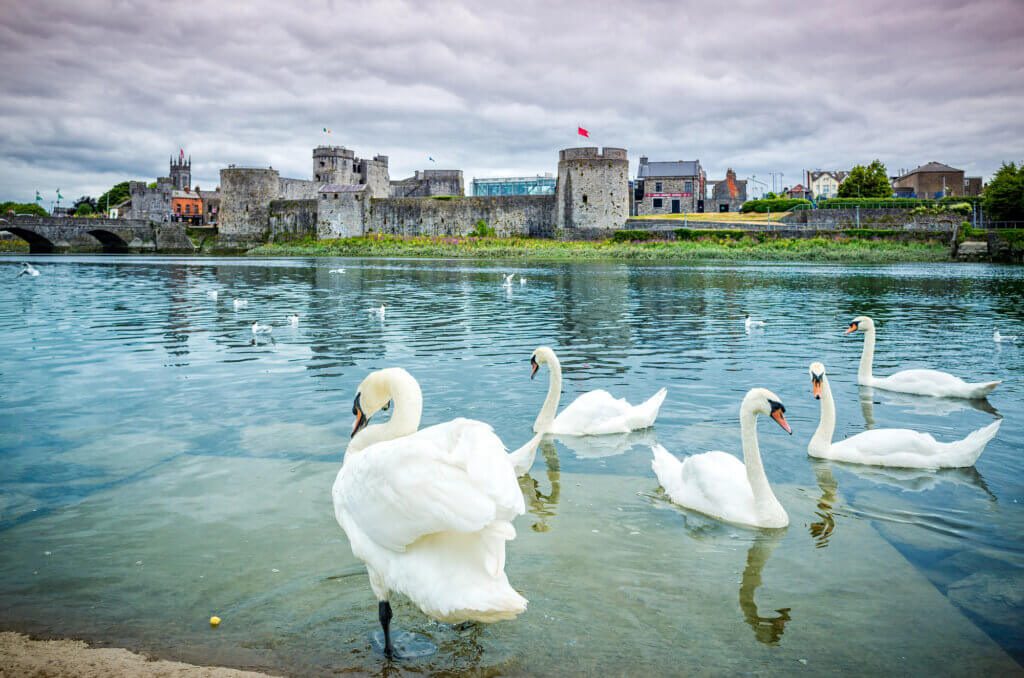
Ultimate Guide to the Best Cities in Ireland to Visit
Limerick
Google Maps
What Limerick is Known For
Limerick, situated on the River Shannon, is known for its medieval history, vibrant arts scene, and rugby culture. The city boasts landmarks like King John’s Castle and St. Mary’s Cathedral. Limerick’s art and literary heritage are celebrated through galleries, museums, and festivals.
Why I Like Limerick
Limerick offers a blend of historic charm and modern vibrancy. Its scenic riverside setting, rich history, and welcoming community make it a delightful destination. The city’s commitment to arts and culture ensures there’s always something interesting to see and do.
History
Founded by the Vikings in the 9th century, Limerick has a long and storied history. It has seen significant events like the Norman invasion and the sieges during the Irish Confederate Wars. The city’s historic sites reflect its rich past.
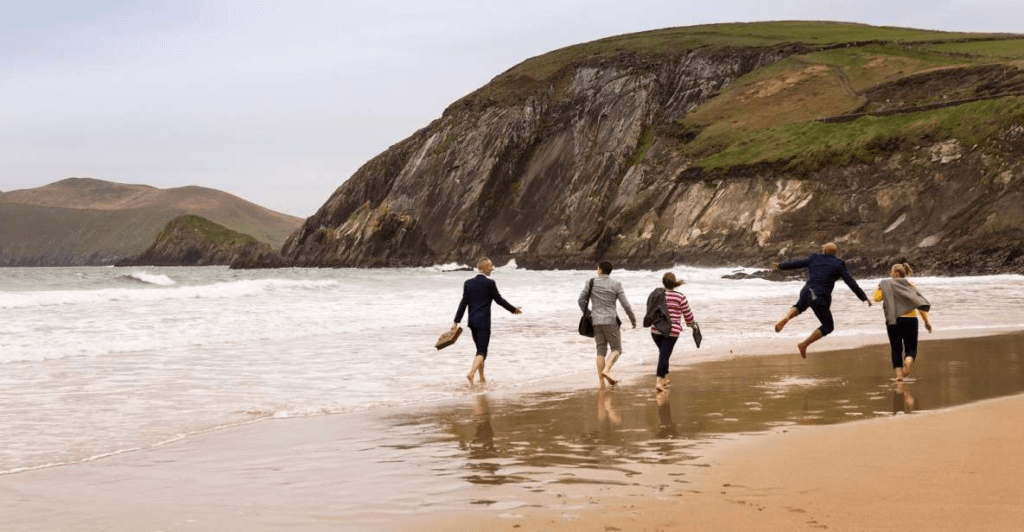
Culture
Limerick is a cultural powerhouse. It is home to the Limerick City Gallery of Art, the Hunt Museum, and a thriving theater scene. The city also hosts several cultural festivals, including the Limerick Literary Festival and the EVA International Contemporary Art Biennial.
Food
Limerick’s food scene is diverse, featuring everything from traditional Irish pubs to gourmet restaurants. Local specialties include fresh seafood, artisan cheeses, and traditional dishes like bacon and cabbage.
Getting Around
Limerick is compact and easy to explore on foot. It also has an efficient public transport system, with buses connecting key areas. Taxis and bike rentals are convenient options for getting around the city.

Things to Do in Limerick
- Banquet at Bunratty Castle: Enjoy a medieval feast at Bunratty Castle, Ireland.
- Cliffs of Moher: Experience Europe’s highest cliffs on this Limerick tour.
- Dingle Day Tour: Dingle Day Tour departing from Limerick
- Ring of Kerry Day Tour: Explore Ring of Kerry’s stunning coastal scenery and heritage.
- Kayaking & Canoeing: Kayak the River Shannon for a unique Limerick experience.

Galway
Google Maps
What Galway is Known For
Galway, located on the west coast, is famous for its vibrant arts scene, bohemian atmosphere, and stunning coastal views. Known as the “City of Tribes,” Galway is celebrated for its lively festivals, traditional music, and charming medieval streets.
Why I Like Galway
Galway’s relaxed vibe, friendly locals, and rich cultural heritage make it a favorite among visitors. The city’s bustling Latin Quarter, filled with shops, pubs, and cafes, is perfect for exploring. Galway’s coastal beauty and vibrant arts scene offer a unique and memorable experience.
History
Galway’s history dates back to the 12th century when it was a small fishing village. In the Middle Ages, it grew into a significant trading port known for its strong connections with Spanish merchants. The city’s medieval heritage is still visible in its architecture and layout.

Ultimate Guide to the Best Cities in Ireland to Visit
Culture
Galway is a cultural gem known for its traditional music, arts festivals, and theater. The Galway International Arts Festival and the Galway Races are major events that attract visitors from around the world. The city’s arts and crafts scene is also vibrant, with many local artisans.
Food
Galway’s culinary scene is diverse, offering everything from fresh seafood to innovative contemporary dishes. The city is known for its oysters, which are celebrated annually at the Galway Oyster Festival. Local markets and eateries provide a taste of the region’s rich culinary heritage.
Getting Around
Galway is compact and walkable, with most attractions within easy reach. The city also has a good public transport system, including buses and taxis. Cycling is a popular option, with bike rental services readily available.
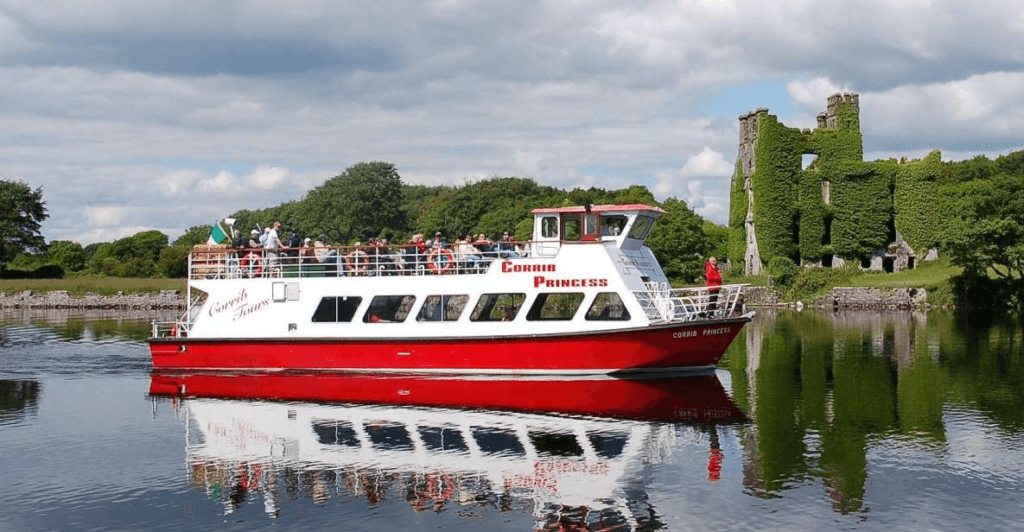
Things to Do in Galway
- Galway Food Tour: Explore Galway’s cuisine on a guided food walking tour.
- Galway Dark History: Experience Galway’s ghostly apparitions on a spine-chilling tour.
- Connemara Tour: Explore Leenane Village and Kylemore Abbey on a Connemara tour.
- Galway Scenic Cruise: Set sail from Galway and explore the River and Lough Corrib.
- From Dublin Day Tour: Cliffs of Moher, Burren & Galway City Day Tour

Waterford
Google Maps
What Waterford is Known For
Waterford, Ireland’s oldest city, is known for its rich Viking history, medieval architecture, and famous crystal ware. The city’s Viking Triangle, with its museums and historic sites, is a highlight. Waterford Crystal, renowned worldwide, continues to attract visitors.
Why I Like Waterford
Waterford’s blend of history, culture, and modern attractions makes it a fascinating destination. The city’s scenic waterfront, charming streets, and friendly locals add to its appeal. Waterford’s rich heritage and vibrant arts scene ensure there’s always something interesting to discover.
History
Founded by the Vikings in 914 AD, Waterford has a rich and varied history. It played a crucial role in Ireland’s medieval period and was a significant port city. The Viking Triangle area preserves much of this history through its museums and landmarks.

Culture
Waterford is a cultural treasure trove with numerous festivals, art galleries, and theaters. The Waterford Harvest Festival and Winterval are key events that showcase the city’s cultural vibrancy. Its many galleries and public art installations highlight the city’s art scene.
Food
Waterford’s food scene combines traditional Irish cuisine with contemporary flavors. The city is known for its blaas (soft white bread rolls), fresh seafood, and artisanal foods. Local markets and restaurants offer a delightful taste of the region’s culinary offerings.
Getting Around
Waterford is easy to navigate on foot, with many attractions nearby. The city also has a reliable public transport system, including buses and taxis. Bike rentals are available for those who prefer cycling.

Ultimate Guide to the Best Cities in Ireland to Visit
Things to Do in Waterford
- House of Waterford Crystal: Tour the famous crystal factory and see master craftsmen.
- Medieval Museum: Explore artifacts and exhibits from Waterford’s medieval past.
- Bishop’s Palace: Discover Georgian history and architecture.
- Viking Triangle: Wander through this historic area with museums and cultural sites.
- Hook Lighthouse: Tour the world’s oldest operational lighthouse, County Wexford.
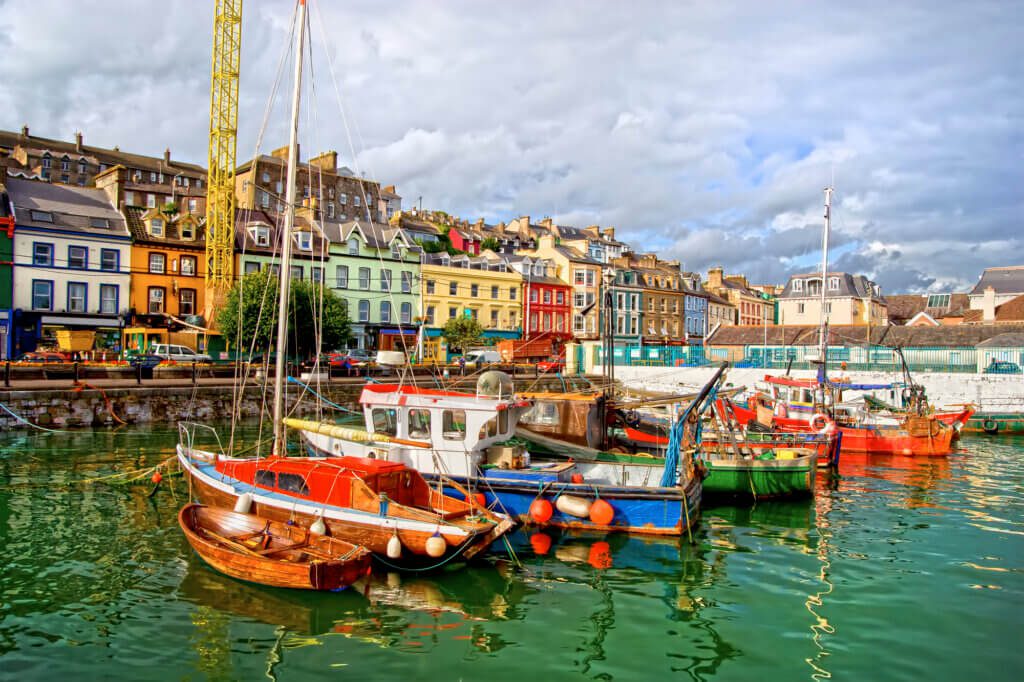
Ultimate Guide to the Best Cities in Ireland to Visit
Visiting Ireland for the First Time
Travel Guide Books
Travel guidebooks can be invaluable when planning your trip to the best cities in Ireland. Renowned publications like Lonely Planet Ireland, Rick Steves Ireland, and Fodor’s Essential Ireland offer comprehensive insights into Ireland’s cities.
These guides provide detailed information on attractions, accommodations, dining, and insider tips to help you navigate the cities and uncover local secrets. They also include maps and itineraries to make your trip more enjoyable and stress-free.

Currency (Money)
The currency used in Ireland is the Euro (€). It’s advisable to have cash on hand for small purchases, though credit and debit cards are widely accepted in most places, including hotels, restaurants, and shops.
ATMs are readily available in all cities, and currency exchange services are available at airports, banks, and major tourist areas. When using cards, be aware of potential foreign transaction fees and consider notifying your bank of travel plans to avoid issues.

Ultimate Guide to the Best Cities in Ireland to Visit
How to Get There
Ireland is accessible via several major international airports, including Dublin Airport (DUB), Shannon Airport (SNN), and Cork Airport (ORK). Direct flights from the United States, Canada, Europe, and other parts of the world make getting to Ireland relatively easy.
Budget Airlines offers numerous flights to various Irish cities for travelers in Europe. Once in Ireland, an extensive network of buses, trains, and car rental services can help you travel between cities. Dublin is the main hub, with excellent connections to other cities and towns nationwide.
Safety
Ireland is generally a very safe country to visit. Violent crime is rare, and petty crime such as pickpocketing is infrequent but can occur in crowded tourist areas. It’s always wise to take standard precautions: keep an eye on your belongings, avoid poorly lit areas at night, and stay aware of your surroundings.
Emergency services can be reached by dialing 112 or 999. Ireland’s health care system is high-quality, and visitors should ensure they have travel insurance to cover any medical expenses.

Ultimate Guide to the Best Cities in Ireland to Visit
Language
The primary language spoken in Ireland is English, making it easy for most travelers to communicate. Irish Gaelic (Gaeilge) is also an official language, though it is less commonly spoken in everyday interactions.
Irish is more widely used in certain regions, known as the Gaeltacht. While you may encounter Irish on road signs and public information, most locals speak English fluently and are happy to assist visitors.

Voltage & Power Plugs
Ireland operates on a voltage of 230V with a frequency of 50Hz. The standard plug type used is the three-pronged British plug (Type G). Travelers from the United States and other countries using different plug types and voltages will need a power adapter and possibly a voltage converter.
It’s a good idea to check your electronic devices to see if they are compatible with 230V and pack the necessary adapters to ensure you can charge your devices and use them without any issues.
Travel Insurance
Travel insurance is highly recommended for anyone visiting Ireland. It can cover various potential issues, including medical emergencies, trip cancellations, lost luggage, and travel delays. Policies vary, so choosing one that suits your specific needs is important.
Look for comprehensive coverage that includes health insurance, especially if your current health plan doesn’t cover you abroad. Some travel insurance plans also offer coverage for activities like hiking or adventure sports, which can be useful if you plan to explore Ireland’s great outdoors.
Review the policy details and understand what is covered to ensure peace of mind during your trip.
Ultimate Guide to the Best Cities in Ireland to Visit 2025
Over the years, I’ve visited these cultural centers as a young man, then with my wife, and later with kids, each time discovering new wonders.
By exploring these cities’ histories and cultures through various tours, you can immerse yourself in the history, vibrant arts, and warmth of the locals, truly experiencing the luck of the Irish.

![From Miami to Bahamas Ferry or Cruise in [year]](https://tripsandtours.com/wp-content/uploads/2023/04/From-Miami-to-Bahamas-Ferry-or-Cruise-390x220.jpg)


